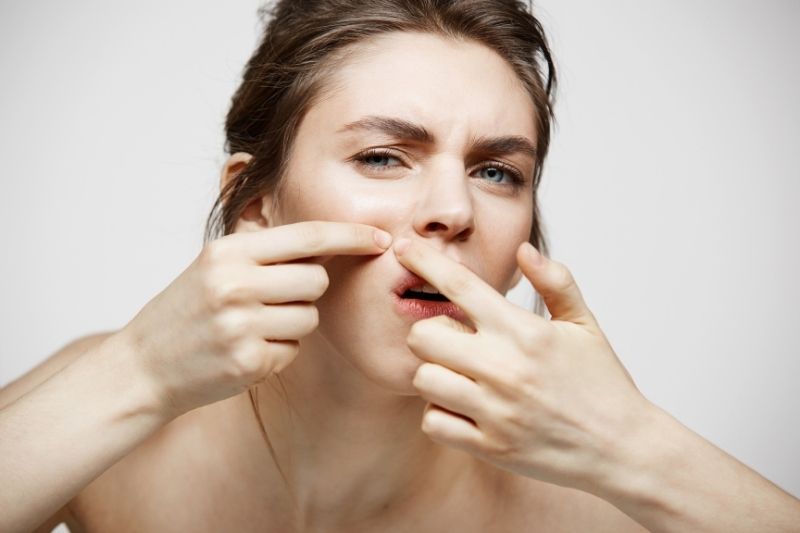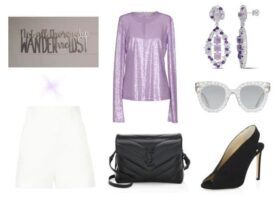Maskne Is a Thing

Masks have become a part of our daily lives during this global pandemic. Since they are a crucial way to stop the spread of COVID-19, it’s important that we continue to wear them when we are out in public or at risk of exposure. Although masks are great for protection, they can unfortunately lead to acne outbreaks. Across social media, people have referred to this as maskne. However, it’s not just an internet joke or fleeting fad. There are scientific reasons as to why it occurs and if you aren’t careful, it can also happen to you. Here are some tips on how to reduce your risk of getting maskne and treating it if it happens.
What Are The Causes of Maskne?
Why are people getting acne outbreaks beneath their masks? As you go about your day breathing and talking with a mask on, you’re keeping a lot of warm air close to your face. This humidity can lead to bacteria and fauna to expand. Combined with the friction of wearing a mask, this increase of bacteria and fauna can result in acne outbreaks.
When you experience an outbreak, you shouldn’t have to change your skincare routine completely. Though you may feel like you have to stop using makeup, moisturizer, and sunscreen together, that’s not necessary. In fact, moisturizer and sunscreen may actually help reduce mask friction by serving as a barrier. You should just avoid using an excessive amount of makeup, moisturizer, and sunscreen because those can trigger breakouts. However, using an excessive amount of any skin product can also be detrimental without wearing a mask.
On another note, you shouldn’t wear a light-fabric mask solely due to an acne outbreak. Although lighter fabrics may cause less skin irritation, you want to make sure the lighter fabric does as good of a job of protecting you from getting infected with COVID-19. Remember: we are wearing these masks as a way to stop the spread and even if it’s a bit uncomfortable, it’s worth it. You should search online for a new mask and research fabrics. With so many masks out there, you can find one that is both comfortable for your skin and offers protection. If you feel like your mask is really unpleasant to wear, try out various types.
How To Reduce The Risk of Developing Acne Under Your Mask
We don’t have to just accept maskne as a new reality. There are ways to prevent it. Here are a few things you can do to reduce your risk of getting acne beneath your mask:
- Take breaks from your mask: When you aren’t in a crowded area and can safely socially distance, you should feel free to take off your mask. For instance, you can take off your mask when you’re alone in your car or sitting outside six feet away from anyone. This way, you will reduce the amount of time you’re entrapping humidity in your face.
- Frequently wash your mask: A great way to get rid of bacteria that causes acne is to wash your mask. At the end of each day, wash your mask with soap and water and dry it out overnight.
- Bring an extra mask with you: When you are going about your day, it’s normal for something to happen to your mask. It can get stained with food or wet from a drink. Bring an extra mask with you so you can easily wear a clean one if something happens.
- Use A Cleanser: Frequently using a cleanser is a great way to keep your face clean.
- Hyaluronic Acid: Applying hyaluronic acid can help keep your moisturized and balance your complexion.
What You Can Do To Treat Maskne
If you experience an maskne outbreak, there are plenty of treatments that are readily available. These are some scientifically proven methods:
- Benzoyl Peroxide: Benzoyl peroxide works by drying out acne.
- Retinoids: Many dermatologists who treat women with moderate to severe acne recommend retinoids such as tretinoin in acne cream for their patients.
- Oral antibiotics: A dermatologist may prescribe you an oral antibiotic in combination with topical treatments such as retinoids.
- Oral Contraceptives: Birth control pills can help manage hormone levels and subsequently treat acne.
- Spironolactone: Since spironolactone can impact hormones, it can be an option for women with an excessive amount of androgens (male hormones).
Try taking this online skin care routine quiz to see what solutions best fit you. We will be wearing masks for the foreseeable future because it’s a scientifically proven way to stop the spread of COVID-19. Though it may cause acne outbreaks, there are plenty of ways to reduce your risk. From frequently washing your mask to using a cleanser, there are very practical things you can do. If you do get maskne, you should look into the myriad of readily available treatments that are out there. Whether it’s using a new topical solution or medication, you will find a method that works for you. Just stay patient and mindful and know that we are all in this together.











Leave a Reply